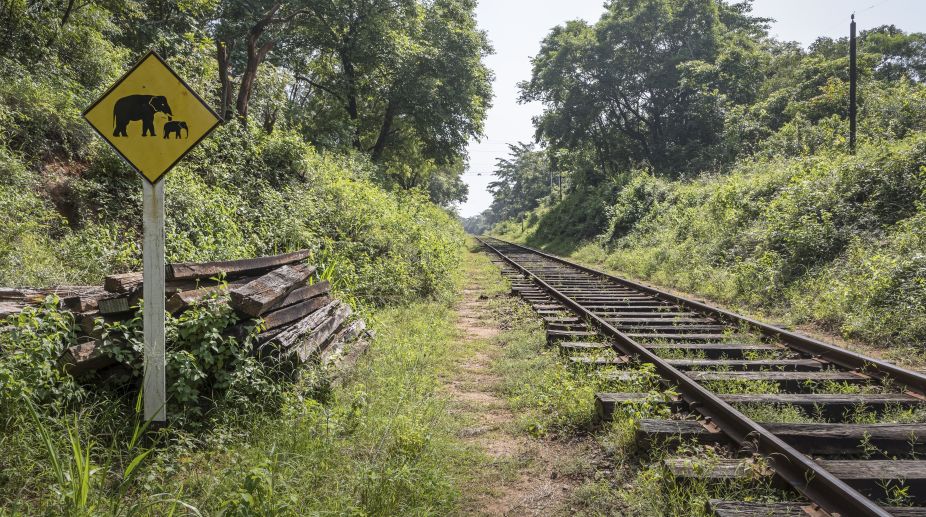Four elephants including a tusker and a calf were run over by the Mumbai-Howrah Gitanjali Express train at 3.30 am near the Teldih level crossing in Jharsuguda in Odisha.
The spot is close to an elephant corridor under Bagdi forest range. The wild elephants were crossing the track when they were hit by the train.
Advertisement
One tusker, two female elephants and a calf died. The force of the collision was so severe that the carcasses of the elephants were found few metres away from the track.
The tragic accident triggered a blame game between the railways and the state forest department.
The senior officials of the railway from Jharsuguda and Chakradharpur rushed to the spot and with help of mechanical devices removed the carcasses.
“For few hours train service got disrupted in this important route connecting both Delhi and Mumbai from Kolkata. Railway had to stop all the passenger and express trains in different stations till normalcy was restored after removal of the carcasses and proper checking of the tracks. But we got successful in resuming the services just after few hours,” informed Sanjay Ghosh, the chief public relations officer (CPRO) of South Eastern Railways from Kolkata.
Almost immediately blame started with the railways stating that they had not been forewarned of elephant movement in the region and the forest department asserting that since 11 April, they had, on a daily basis, informed railways of elephant movement in the region.
Both Rourkela and Jharsuguda railway officers were informed on a daily basis, the railways never takes such information seriously, alleged the forest department sources.
Forest officers complained that the railways were not adhering to standing instructions of slowing down speed of trains near elephant corridors, using hooters and powerful lights etc.
But the railway CPRO said they had never been warned of the elephant corridor or movement near Bagdih. “Had they informed us earlier, we would have taken all precautionary measures like other places in this particular route,” Ghosh added.
“As per provisions for the elephant safety, the train drivers have to maintain a speed of only 30 km per hour in the corridors. But in absence of any information to us, we didn’t take any measures here that finally resulted in such an unfortunate incident,” he said.











